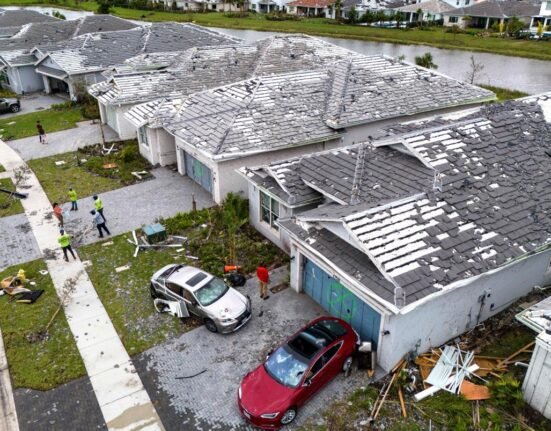The Cyprus Real Estate Agents Registration Council on Monday welcomed the court’s decision to convict two Hungarian nationals for their involvement in the illegal promotion and sale of Greek Cypriot properties in the island’s north.
Council president Marinos Kineyirou said the ruling “sends a clear and unequivocal message that such illegal acts do not go unpunished”.
The convictions mark a significant legal milestone in Cyprus. They are the first cases in which individuals have admitted guilt for usurping Greek Cypriot property in the north since 1974.
Since then, the Republic of Cyprus has maintained that it retains sovereignty over the occupied areas, despite its inability to exercise control.
The Nicosia court found that both women had knowingly engaged in promoting and advertising homes constructed on land belonging to displaced Greek Cypriots, without the owners’ consent.
The first defendant, a retired beautician, was sentenced to two and a half years in prison. She admitted to 21 out of 63 charges, which included advertising real estate in Kalogrea, Ayios Amvrosios, and Akanthou through her personal website and social media.
A search revealed brochures for tourist complexes and a “marketing and agency agreement” on her mobile phone. This agreement offered her a twenty per cent broker’s commission from a property company based in the north. Other documents bearing her signature as an “agent” were also found in her possession.
The second defendant, a hairdresser, received a fifteen-month prison sentence. She pled guilty to six charges and had been promoting properties on behalf of the same company. A separate agency agreement from 2024 granted her a five per cent broker’s commission.
She told the court she had referred interested buyers to the north and was unaware her actions were illegal, mistakenly believing that an agreement between Greece, Turkey, and Cyprus had resolved all property compensation matters.
The court rejected this claim, stating that the defendants “knew or should have known” they lacked legal authority to market the properties. It described the offences as “very serious” and warned that promoting such sales contributes to “further legal faits accomplis” that jeopardise the rights of displaced persons.
While acknowledging the women’s cooperation and lack of prior criminal records, the court insisted that the sentences must act as a deterrent.
Kineyirou condemned the actions as “unacceptable”, particularly in light of the violent displacement suffered by the original property owners.
“It is unacceptable to attempt the usurpation of properties belonging to people who were violently displaced from their homes,” he said.
“The council, within the limits of its powers, will continue working to prevent similar phenomena in the future,” the council stated in its announcement.
Finally, the council stressed the need for “continuous vigilance and coordinated efforts at all levels” to tackle the illegal exploitation of property in the occupied areas and curb unlicensed real estate practices.







